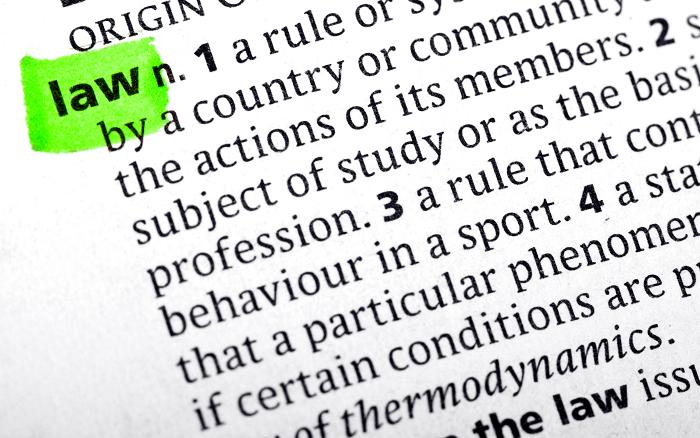Virginia Hate Crime Assault Lawyer
Hate crimes, which are often referred to as bias-motivated crimes, are offenses that are committed against certain individuals because of their race, religion, ethnicity, gender, sexual orientation, or disability. According to the Federal Bureau of Investigations (FBI), in the year 2012 alone 5,796 hate crime incidents were reported nationwide. In Virginia, the criminal code defines a hate crime as “a criminal act committed against a person or his property with the specific intent of instilling fear or intimidation in the individual against whom the act is perpetrated because of race, religion, or ethnic origin…” The Commonwealth has a very strict approach to hate crimes and penalties for any criminal offense can become more severe if the crime was committed against a targeted individual. If you have been charged with assaulting someone based on their race, religion, or ethnicity, a Virginia hate crime assault attorney can help provide you with more information on hate crimes and the charges you face.
Assault Hate Crimes in Virginia
 When a suspect commits assault or assault and battery because of a person’s race, religion, or ethnicity, the offense carries greater penalties than simple assault. According to the Code of Virginia Section 18.2-57(b), if an offender commits assault against someone and the victim was targeted specifically because of their race, religious conviction, color, or national origin, then the offense remains a Class 1 misdemeanor but the hate crime element carries a penalty of an additional six months in jail, with a 30-day mandatory minimum period of incarceration. If assault and battery is committed and results in injury to the victim, the offense is escalated to a Class 6 felony, which can result in one to five years in prison and/or a fine of up to $2,500 upon conviction.
When a suspect commits assault or assault and battery because of a person’s race, religion, or ethnicity, the offense carries greater penalties than simple assault. According to the Code of Virginia Section 18.2-57(b), if an offender commits assault against someone and the victim was targeted specifically because of their race, religious conviction, color, or national origin, then the offense remains a Class 1 misdemeanor but the hate crime element carries a penalty of an additional six months in jail, with a 30-day mandatory minimum period of incarceration. If assault and battery is committed and results in injury to the victim, the offense is escalated to a Class 6 felony, which can result in one to five years in prison and/or a fine of up to $2,500 upon conviction.
Determining Evidence of Bias that Produced a Hate Crime
In order to determine whether or not the defendant had a bias toward the victim of the crime, relevant evidence might include any or all of the following:
- Defendant is a member of a group that advocates hatred of certain groups;
- The perpetrator possesses literature or symbols associated with bias;
- The defendant’s own writings, even those found online or in emails, graffiti, or tattoos;
- The suspect used biased slurs during the commission of the crime; or
- The date of the incident coincides with a significant holiday, date, or anniversary that is associated with bias and hate towards a certain group or groups.
Having a bias in and of itself is not considered a criminal offense. The United States Constitution protects our freedom of speech, but it also protects us from undue harm. Hate crime penalties punish spiteful and malevolent acts motivated by prejudice, not actual thoughts or opinions. However, establishing a defendant’s bias is a strategy that prosecutors will use in order to establish the defendant’s motivation for committing the crime against that particular individual.
For example, if someone is known to rant negatively against Hispanics or African Americans, using slurs and threatening to take action, and then they attack and injure someone of that ethnicity while yelling insults referring to their heritage, they can be charged with hate crime assault. All the statements they made before and during the attack can be introduced as evidence of racial bias, but it is the defendant’s act of attacking the person that is the criminal offense.
Fighting Hate Crime Assault Charges
As with any criminal offense, prosecutors must prove each element of a hate crime beyond a reasonable doubt in order to secure a conviction. This means proving two essential facts:
- The defendant committed a criminal act (such as arson or assault); and
- The defendant did so with the intent of directing it at a specific person or group because of racial, religious, or other bias.
Proving that the defendant selected the alleged victim because of their racial, religious, or ethnic background can be very difficult for prosecutors because evidence of hate can be difficult to conclusively establish. The defendant may not have even known about the victim’s religious convictions, for example, therefore their words or actions may have been misconstrued. Another common defense strategy that a seasoned attorney may use to fight hate crime charges is the First Amendment right to free speech.
If you have been unjustly charged with hate crime assault, it is important to protect your rights and your reputation. Contact a criminal defense attorney today for a free consultation and to learn more about the charges against you.







